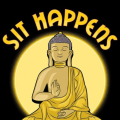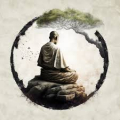Are the Buddha's Teachings Credible, Reliable, and Plausible ?
 Shoshin1
Sentient BeingOceania Veteran
Shoshin1
Sentient BeingOceania Veteran
Well I was on jury duty for two and half weeks and at the beginning of the trial the judge provided the 3 key points to look out for when assessing the evidence and testimonies given by the complainant and the defendant ...
Credibility, reliability, and plausibility the key considerations in weighing the evidence presented by both the complainant and the defendant.
We (the jurors) had to evaluate the trustworthiness, consistency, and reasonableness of the evidence and testimony to determine the facts of the case and reach a fair and just decision.
At times it was tough going, working our way through all the evidence, the mind would chop and change between guilty, not guilty and unsure ...
After two and half days of brain gymnastic deliberation ...we finally came to a unanimous agreement...
Which got me thinking...
Credibility, reliability, and plausibility also applies when approaching the Four Noble Truths and the Eightfold Path...
Credible: In the context of the Four Noble Truths and the Eightfold Path, credibility refers to the believability or trustworthiness of these teachings. Are they based on sound reasoning, empirical evidence, or authoritative sources within the Buddhist tradition? The credibility of these teachings may be assessed based on their consistency with other Buddhist scriptures, the teachings of respected Buddhist teachers, and their ability to address the existential concerns and experiences of practitioners.
Reliable: Reliability pertains to the consistency and dependability of the Four Noble Truths and the Eightfold Path in producing desired outcomes or transformations in individuals who practice them. Can these teachings be relied upon to lead to the cessation of suffering and the attainment of enlightenment, as promised in Buddhist doctrine? The reliability of these teachings may be evaluated through personal experience, as well as the experiences of other practitioners over time.
Plausible: Plausibility refers to the degree to which the Four Noble Truths and the Eightfold Path are reasonable and sensible within the context of Buddhist philosophy and psychology. Do these teachings resonate with human nature and the observable phenomena of suffering and its causes? Are they coherent and compatible with other aspects of Buddhist doctrine, such as the law of karma and the nature of reality? The plausibility of these teachings may be assessed through logical analysis, philosophical inquiry, and introspective reflection.
I guess, one would have to see for themselves "Ehipassiko" ...







Comments
If only we could apply that to life in general - it would be a much better world.
It’s interesting, when thinking of the credibility, reliability and plausibility of the Four Noble Truths and the Eightfold Path that these things really only become apparent after a long period of contact with them.
I found the Four Noble Truths to not be very approachable when stated in terms of suffering, but obviously true when stated in terms of unsatisfactoriness. Further I found Ajahn Chah’s teaching on letting go to be a better answer than the Eightfold Path to the problems posed.
Whether the Eightfold Path is really a good answer to the problem of dukkha is not at all clear to me. It is not easy to see whether it transforms one’s life to such an extent that dukkha ceases to be a problem. And for me, while I have seen progress in the factors of the path, it wasn’t that which made a key difference.
Just my observations.
I have a friend to teaches Sanskrit at Naropa in Colorado. We were talking, and he told me of an alternate translation to "Eightfold Path". He said that in some texts it called "The Eightfold Path of the Noble Ones". "Noble Ones" refers to Enlightened Beings. It's not the path taken to Enlightenment or Buddhahood. It means the path that The Enlightened are on.
This suggests that only an Enlightened Being can walk that path and based on personal testimonies such as yours, that would seem reasonable.
Consider this:
Don't worry about trying to follow the 8FP. That will only increase suffering. Practice instead. The Path will manifest from that.
Remember, the Buddha found Enlightenment while in meditation.
Yes I, like many others would agree, that the term suffering seems to be a sticking point for some when they first approach the 4NTs & 8FP ...It's only when one delves deeper into the actual meaning of the word Dukkha that the penny drop and a clearer understand presents itself ....
I think the thing is, the first Noble Truth when it is stated as “there is suffering” calls into question whatever happiness you have managed to find for yourself. And the search for happiness is a key component of living in western civilisation.
But the Buddha’s wisdom is manifest in many other stories and sutras from the Pali Cannon. It seems to me that to judge his credibility solely on the 4NT and the 8FP is selling him rather short.
Dukkha has 3 levels. The gross level is what I think most people think of when they think of suffering. So hearing the term suffering without an understanding of what a Buddhist means by the term will lead to a wrong view.
Simple answer to the question: YES